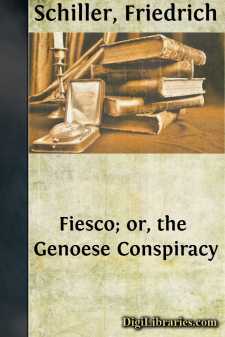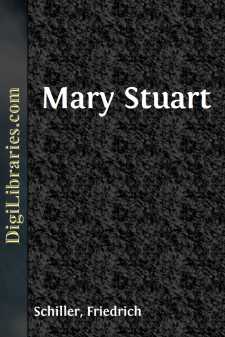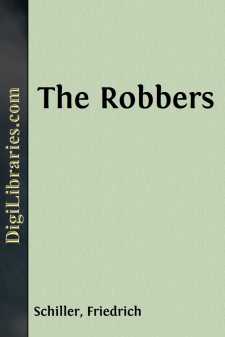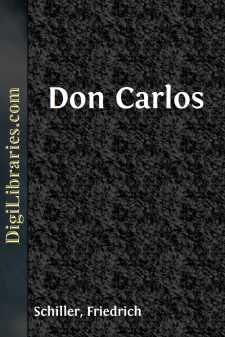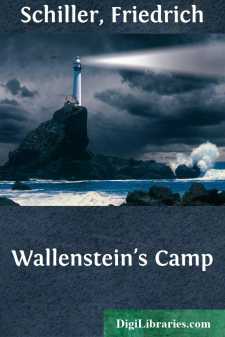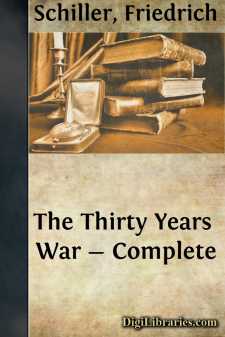Categories
- Antiques & Collectibles 13
- Architecture 36
- Art 48
- Bibles 22
- Biography & Autobiography 813
- Body, Mind & Spirit 142
- Business & Economics 28
- Children's Books 17
- Children's Fiction 14
- Computers 4
- Cooking 94
- Crafts & Hobbies 4
- Drama 346
- Education 46
- Family & Relationships 57
- Fiction 11829
- Games 19
- Gardening 17
- Health & Fitness 34
- History 1377
- House & Home 1
- Humor 147
- Juvenile Fiction 1873
- Juvenile Nonfiction 202
- Language Arts & Disciplines 88
- Law 16
- Literary Collections 686
- Literary Criticism 179
- Mathematics 13
- Medical 41
- Music 40
- Nature 179
- Non-Classifiable 1768
- Performing Arts 7
- Periodicals 1453
- Philosophy 64
- Photography 2
- Poetry 896
- Political Science 203
- Psychology 42
- Reference 154
- Religion 513
- Science 126
- Self-Help 84
- Social Science 81
- Sports & Recreation 34
- Study Aids 3
- Technology & Engineering 59
- Transportation 23
- Travel 463
- True Crime 29
Friedrich Schiller
Friedrich Schiller (1759–1805) was a seminal German playwright, poet, and philosopher, known for his profound influence on German literature and drama. His notable works include "The Robbers," "William Tell," and "Ode to Joy," the latter of which was famously set to music by Beethoven in his Ninth Symphony. Schiller's writings often explored themes of freedom, justice, and the struggle against tyranny, making him a pivotal figure in the Sturm und Drang movement and German Romanticism.
Author's Books:
Sort by:
The two counts were a few weeks after their arrest conveyed to Ghent under an escort of three thousand Spaniards, where they were confined in the citadel for more than eight months. Their trial commenced in due form before the council of twelve, and the solicitor-general, John Du Bois, conducted the proceedings. The indictment against Egmont consisted of ninety counts, and that against Horn of sixty....
more...
ACT I.SCENE I.A Saloon in FIESCO'S House. The distant sound of dancing andmusic is heard. LEONORA, masked, and attended by ROSA and ARABELLA, enters hastily. LEONORA (tears off her mask). No more! Not another word! 'Tis as clear as day! (Throwing herself in a chair.) This quite overcomes me—— ARABELLA. My lady! LEONORA (rising.) What, before my eyes! with a notorious coquette! In presence...
more...
SCENE I. A common apartment in the Castle of Fotheringay. HANNAH KENNEDY, contending violently with PAULET, who is aboutto break open a closet; DRURY with an iron crown. KENNEDY.How now, sir? what fresh outrage have we here?Back from that cabinet! PAULET.Whence came the jewel?I know 'twas from an upper chamber thrown;And you would bribe the gardener with your trinkets.A curse on woman's...
more...
INTRODUCTION. The special subject of the greater part of the letters and essays of Schiller contained in this volume is Aesthetics; and before passing to any remarks on his treatment of the subject it will be useful to offer a few observations on the nature of this topic, and on its treatment by the philosophical spirit of different ages. First, then, aesthetics has for its object the vast realm of the...
more...
Now first translated into English. This play is to be regarded merely as a dramatic narrative in which, for the purpose of tracing out the innermost workings of the soul, advantage has been taken of the dramatic method, without otherwise conforming to the stringent rules of theatrical composition, or seeking the dubious advantage of stage adaptation. It must be admitted as somewhat inconsistent that...
more...
SCENE I. The Royal Gardens in Aranjuez. CARLOS and DOMINGO. DOMINGO.Our pleasant sojourn in AranjuezIs over now, and yet your highness quitsThese joyous scenes no happier than before.Our visit hath been fruitless. Oh, my prince,Break this mysterious and gloomy silence!Open your heart to your own father's heart!A monarch never can too dearly buyThe peace of his own son—his only son.[CARLOS looks...
more...
SCENE I. Sutlers' tents—in front, a Slop-shop. Soldiers of all colors anduniforms thronging about. Tables all filled. Croats and Hulanscooking at a fire. Sutler-woman serving out wine. Soldier-boysthrowing dice on a drum-head. Singing heard from the tent. Enter a Peasant and his Son. SON.Father, I fear it will come to harm,So let us be off from this soldier swarm;But boist'rous mates will...
more...
THE INVINCIBLE ARMADA. She comes, she comes—the burden of the deeps!Beneath her wails the universal sea!With clanking chains and a new god, she sweeps,And with a thousand thunders, unto thee!The ocean-castles and the floating hosts—Ne'er on their like looked the wild water!—WellMay man the monster name "Invincible."O'er shuddering waves she gathers to thy coasts!The horror that...
more...
POEMS OF THE FIRST PERIOD. HECTOR AND ANDROMACHE. [This and the following poem are, with some alterations, introducedin the Play of "The Robbers."] ANDROMACHE.Will Hector leave me for the fatal plain,Where, fierce with vengeance for Patroclus slain,Stalks Peleus' ruthless son?Who, when thou glid'st amid the dark abodes,To hurl the spear and to revere the gods,Shall teach thine orphan...
more...
The present is the best collected edition of the important works of Schiller which is accessible to readers in the English language. Detached poems or dramas have been translated at various times since the first publication of the original works; and in several instances these versions have been incorporated into this collection. Schiller was not less efficiently qualified by nature for an historian...
more...



